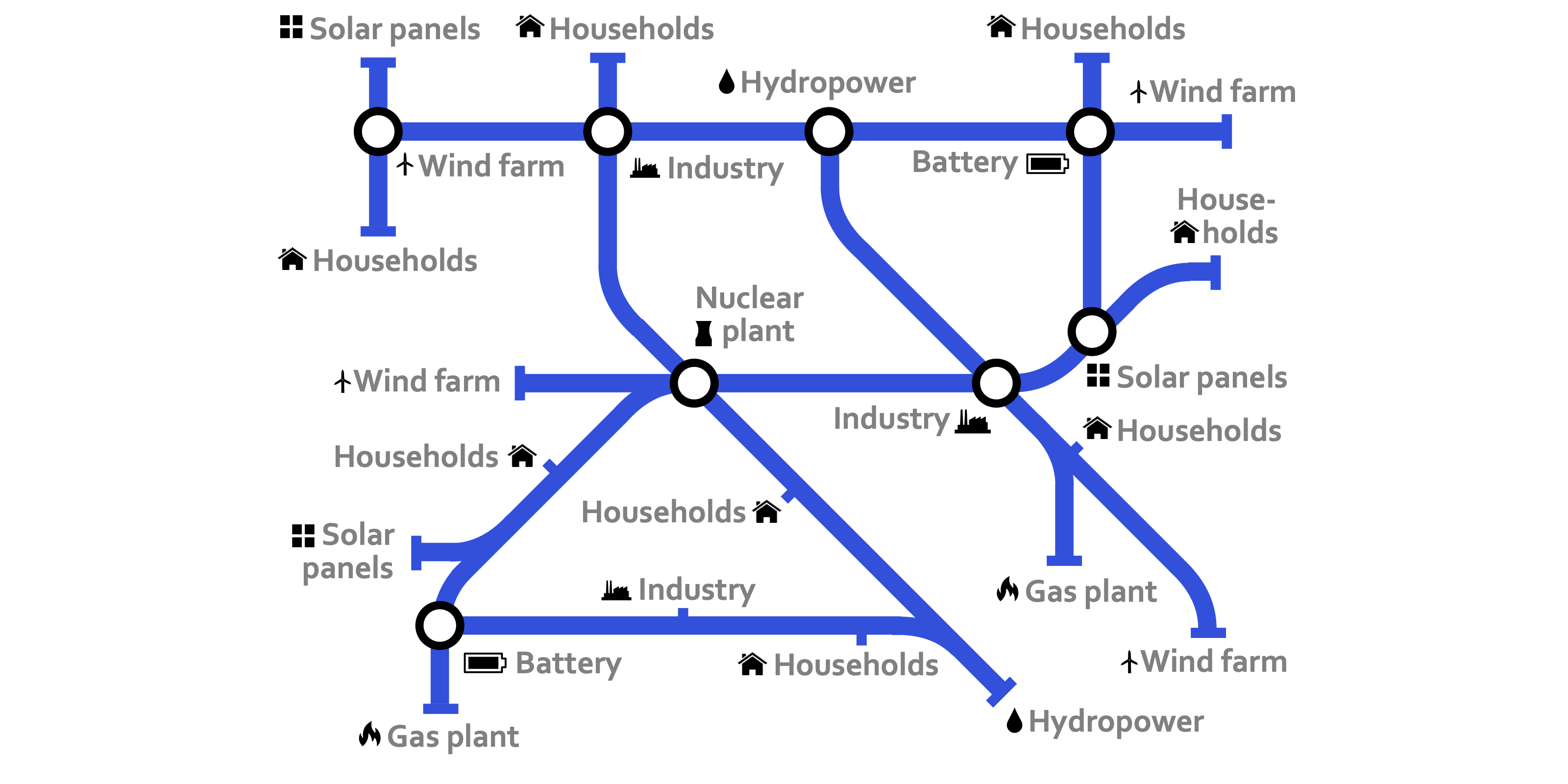Research
Interests: Statistics, renewable energy, machine learning, optimisation.
PhD research

Supervisors: Axel Gandy (Imperial College London), David Brayshaw (University of Reading).
My PhD focuses on using statistics to make the best decisions in the energy transition, particularly in the electricity sector. Such decisions (e.g. whether to build a wind farm, battery or new transmission line) are typically difficult due to the complexity of electricity grids and considerable uncertainty regarding future government policy, grid developments, electricity demand/price patterns and weather events.
For this reason, electricity strategy is typically informed by large amounts of data. For example, to determine the best location of a new wind farm, historic wind speeds and electricity prices may be employed, along with a model of the grid. This leads to a natural statistics problem: how do we use the available data to make the best decisions in the energy transition?
Publications
See Google Scholar page for up-to-date publication list.
Academic papers (first author)
-
AP Hilbers, DJ Brayshaw, A Gandy (2023). Reducing climate risk in energy system planning: a posteriori time series aggregation for models with storage. Applied Energy, 334, 120624. [open access paper] [code]
-
AP Hilbers, DJ Brayshaw, A Gandy (2021). Efficient quantification of the impact of demand and weather uncertainty in power system models. IEEE Transactions on Power Systems, 36-3, 1771-1779. [paper] [open access version] [code]
-
AP Hilbers, DJ Brayshaw, A Gandy (2020). Importance subsampling for power system planning under multi-year demand and weather uncertainty1. In proceedings of the 16th IEEE International Conference on Probabilistic Methods Applied to Power Systems (PMAPS 2020). [paper] [open access version] [code]
-
AP Hilbers, DJ Brayshaw, A Gandy (2019). Importance subsampling: improving power system planning under climate-based uncertainty2. Applied Energy, 251, 113114. [paper] [open access version] [code]
1Runner-up for Roy Billinton Award for best student paper
2See 2020 importance subsampling paper for updated version
Academic papers (contributing author)
- HC Bloomfield, PLM Gonzalez, JK Lundquist, LP Stoop, J Browell, R Dargaville, M De Felice, K Gruber, AP Hilbers, A Kies, M Panteli, HE Thornton, J Wohland, M Zeyringer, DJ Brayshaw (2021). The importance of weather and climate to energy systems: a workshop on next generation challenges in energy-climate modelling. Bulletin of the American Meteorological Society, 102(1), 159-167. [paper]
PhD thesis
- AP Hilbers (2023). Subsampling for renewable electricity system optimisation. Imperial College London. [thesis]
Software
- Renewable test power system models: a set of easy-to-use and customisable power system models for renewable energy and time series analysis. [code]